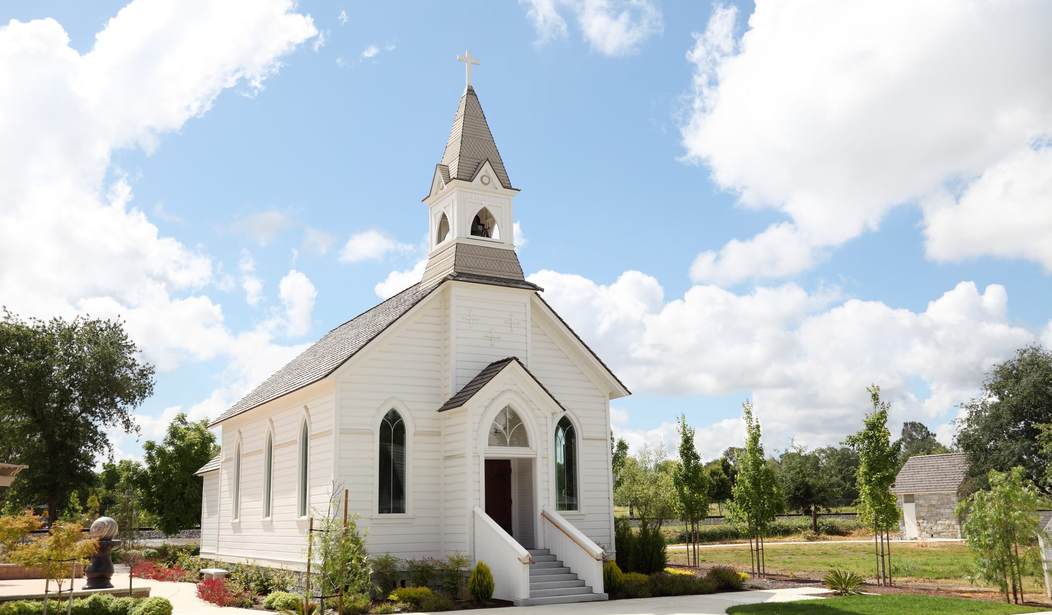A Texas city singled out religious services for special restrictions in its coronavirus stay-at-home order this week, the religious freedom firm First Liberty claimed in a letter it sent to the city’s mayor. According to First Liberty, city officials quickly revised the order, restoring the religious freedom of churches and other groups in the city.
McKinney, Texas, put out a mandatory stay-at-home order on Thursday, applying special restrictions on “religious and worship services” that went beyond the Centers for Disease Control (CDC) guidance and did not apply to secular gatherings.
“Religious and worship services may only be provided by video and teleconference. Religious institutions must limit in-person staff to ten (10) people or less when preparing for or conducting video or teleconference services, and all individuals must follow the Social Distancing Guidelines including the six-foot social distancing. Funerals are allowed with appropriate social distancing,” the order stated.
The city also distributed a flyer listing “in-person religious gatherings” as one of only two “prohibited activities,” the other of which being “all elective medical, surgical and dental procedures.”
On Friday morning, First Liberty General Counsel Michael Barry sent a letter to McKinney’s mayor, George Fuller, arguing that the restrictions violated the religious freedom of the city’s residents.
“We write to inform you that these restrictions go well beyond the CDC guidelines, and violate federal and state law, and we encourage you to amend the Disaster Declaration to remedy these violations. While we appreciate the delicate balance between public health and constitutional rights, the City must address the ongoing public health crisis in a way that does not discriminate against religious exercise,” Barry wrote.
“By singling out religious services for special restrictions, McKinney’s Disaster Declaration violates both the First Amendment’s Free Exercise Clause and Texas’s Religious Freedom Restoration Act (“TRFRA”). TRFRA prohibits governments from substantially burdening religious exercise without demonstrating that the restriction advances a compelling interest by the least restrictive means,” Barry explained. “The Free Exercise Clause imposes a similar standard when a law targets religious exercise.”
“Prohibiting in-person church services and enforcing the limitations through criminal prosecution and potentially crippling fines…indisputably imposes a substantial burden on religious exercise,” the lawyer added. “Indeed, the flyer you put out summarizing your restrictions indicate that even if two people gather for religious worship they are in violation. McKinney cannot meet its burden to demonstrate that it imposes this burden to advance a compelling interest by the least restrictive means.”
Barry noted that the disaster declaration targets religious services for special restrictions, mandating that religious services only use video or teleconferencing without applying this restriction “against any other entity.” In fact, the order allowed “McKinney City Council meetings to proceed in person and requiring teleconferencing only when ‘possible.'”
According to Barry, this restriction “uniquely handicaps churches from developing innovative ways to provide religious services consistent with social distancing guidelines. For example, some churches across the country organized drive-in services that comply with all applicable social distancing guidelines.”
Similarly, the specific limitation of in-person church personnel to ten “treats similarly situated entities more leniently” and is not necessary to maintain social distancing, the lawyer claimed. “Although it subjects churches to a strict ten-person staff limit, the Disaster Declaration notably does not impose such a limit on other entities engaging in similar activity. Restaurants providing drive-through or take out service, for example, are not limited to ten in-person staff.”
According to First Liberty, McKinney listened to these objections and acted quickly to revise the order. The stay-at-home order has been updated to note that “religious and worship services may be provided by video, teleconference, or such other manner that follows the Social Distancing Guidelines.” The city also sent out a revised flyer that does not single out churches. The “prohibited activities” section includes “all public and private gatherings”; “in-person eating or drinking at bars, restaurants or food courts”; and “visiting nursing homes, retirement or long-term care facilities.” It no longer even mentions religious gatherings.
“We are grateful to McKinney city officials who responded quickly and appropriately to ensure their policies are both consistent with the Constitution and the CDC’s guidelines,” Barry said in a statement on Friday. “During this challenging time, we need to see more of this kind of cooperation between government officials and the religious community. We continue to advise religious institutions to follow the CDC’s 15-day guidelines, but we all look forward to the day the faith community can again meet together, in person.”
Earlier this month, First Liberty published guidance for churches on how to ensure that the government does not violate their religious freedom during the coronavirus crisis. While governments have unique authority and responsibility during the crisis, the crisis does not suspend Americans’ constitutional rights.
Tyler O’Neil is the author of Making Hate Pay: The Corruption of the Southern Poverty Law Center. Follow him on Twitter at @Tyler2ONeil.









Join the conversation as a VIP Member